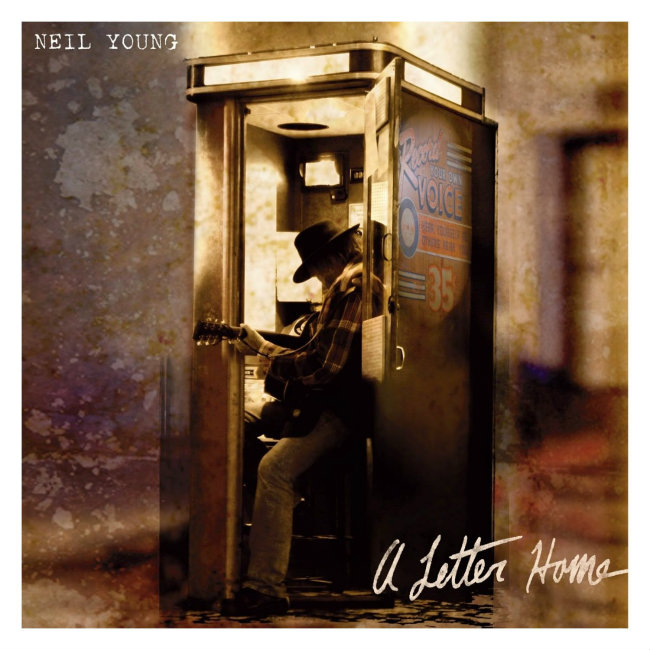Neil Young
A Letter Home

On A Letter Home, the old man takes a look at his life through the voices and visions of his folk-rock, blues, and country peers and heroes on the ultimate lo-fi cover album. Utilizing a vintage 1940s Voice-O-Graph vinyl recording booth at Jack White’s Nashville headquarters, Young frames the album with a moving spoken-word letter to his deceased mother. From there, he dives right in with a touching rendition of the troubled protest singer Phil Ochs’s “Changes.” As well rendered as it is, one might still question why Ochs’s “The Chords of Fame” wasn’t chosen instead. Bob Dylan is next on Young’s back pages, as the Toronto troubadour tackles the tender “Girl from the North Country” robustly, with his harmonica, guitar, and voice all in fine form. The late, great, Scotsman Bert Jansch’s somber “Needle of Death” receives a dignified if melancholic treatment and is perhaps the one track that can’t help but make the listener think of Young’s own classic cautionary tale: “The Needle and the Damage Done.” Further on, fellow Canuck Gordon Lightfoot’s “gold” gets pilfered by Young, resulting in two of the disc’s best covers: the rustic “Early Morning Rain” and the sublimely intimate “If You Could Read My Mind,” both of which Young effortlessly alchemizes into his own songs. Willie Nelson, likewise, gets covered twice, but with uneven results. While Young’s take on “Crazy” is great, his version of “On the Road Again,” featuring Jack White on supporting vocals and plonkity piano, is too exuberantly over-the-top. But hey, at least it sounds as if they were having fun. Tim Hardin’s “Reason to Believe” is credibly done, but “You Upset the Grace of Living When You Lie” might have been a bigger challenge. Then there’s A Letter Home’s more interesting choices: Ivory Joe Hunter’s boogie-woogie-flavored “Since I Met You Baby,” Springsteen’s “My Hometown,” done with aplomb; and — last but not least — the Everly Brothers’ wonderful “I Wonder If I Care as Much,” which once again costars White, but with much better results. While the grainy, crackling, sounds of the Voice-O-Graph-as-time-machine recordings might be an acquired taste to some, and the lack of Leonard Cohen or Joni Mitchell songs might irk others, by the end of the album’s search of lost time, we’ve taken a look at our lives, and we’re a lot like Neil.



